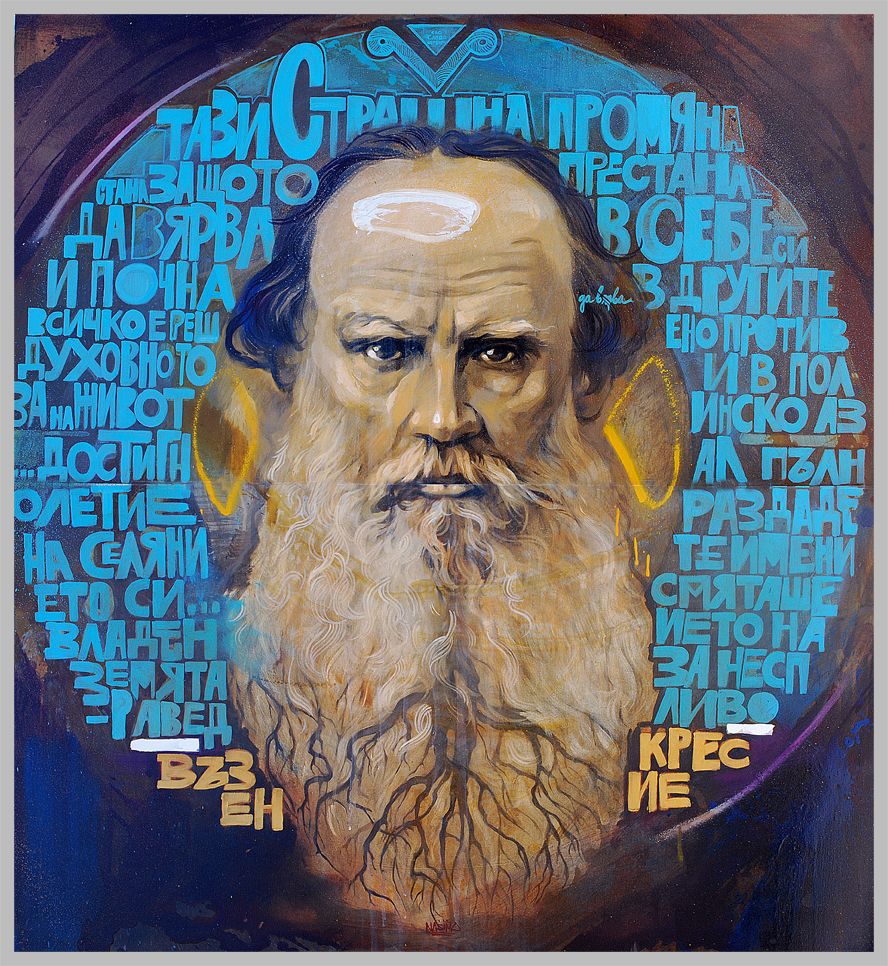Leo Tolstoy Archive
Written: 1855
Source: Text from WikiSource.org
Transcription/Markup: Andy Carloff
Online Source: RevoltLib.com; 2021

In Russia there are three prevailing types of soldiers, among which may be classed the soldiers of all the armies : of the Caucasus, the Ипе, the guards, the infantry, the cavalry, the artillery, and so forth.
These three types, capable of many subdivisions and blendings, are the following :
(1) The submissive.
(2) The commanding.
(3) The desperate.
The submissive soldiers may be subdivided into (a) indifferently submissive and (b) busily submissive.
The commanding may be subdivided into (a) austerely commanding and (b) sagaciously commanding.
The desperate may be subdivided into (a) desperate jokers and (b) desperate debauchees.
The commonest type is a gentle, sympathetic type, which unites the best Christian virtues, meekness, piety, patience, and submission to the will of God, and is that of the submissive in general. The distinctive features of an indifferently submissive soldier are an imperturbable calm and contempt for all the vicissitudes of fortune to which he may be subjected. The distinctive feature of the submissive drunkard is a quiet, poetical inclination and sentimentahty. The distinctive feature of the busily submissive is a limited mental capacity, united with an aimless industry and zeal.
The commanding type is found preponderantly in the higher spheres of the noncommissioned officers, among corporals, under-officers, sergeants, and so forth. Among these, the austerely commanding type is noble, energetic, preeminently martial, and not devoid of high poetical impulses. To this type belonged Corporal Antonov, with whom I intend to acquaint the reader. The second sub-division is formed by the sagaciously commanding, who of late have been getting quite common. A sagaciously commanding noncommissioned officer is always eloquent, knows how to read and write, wears a pink shirt, does not eat from the common kettle, at times smokes Musat tobacco, considers himself incomparably higher than a common soldier, and is rarely as good a soldier as the commanding of the first order.
The desperate type, like the commanding type, is good only in the first subdivision : the distinctive traits of desperate jokers are their imperturbable cheerfulness, their ability to do everything, a well-endowed nature, and dashing spirit of adventure ; this type is just as dreadfully bad in the second subdivision of desperate debauchees, who, however, to the honor of the Eussian army be it said, occur very rarely, and wherever they are found are removed from companionship by the community of the soldiers themselves. The chief characteristics of this sub-division are faithlessness and a certain adventurousness in vice.
Velenchiik belonged to the order of the busily submissive. He was a Little-Eussian by birth, fifteen years in active service, and though not a very fine-appearing man, and not a very agile soldier, he was simple-hearted, kindly, overzealous, though generally inopportunely so, and exceedingly honest. I say " exceedingly honest," because the year before there had been an incident when he had very palpably displayed this characteristic quality. It must be remarked that nearly every soldier has some trade; the most popular trades are those of a tailor and a shoemaker. Velenchiik had learned the first, and, to judge from the fact that Sergeant Mikhail Dorofeich himself had him make his clothes for him, he must have reached a certain artistic perfection in it.
The year before, while in camp, Velenchuk had under- taken to make a fine overcoat for Mikhail Dorofeich ; but in the night, when, after cutting the cloth and fixing the lining, he lay down to sleep with the goods under his head, a misfortune befell him : the cloth, which had cost seven rubles, had disappeared. With tears in his eyes, trembling lips, and restrained sobs, Velenchuk announced the fact to the sergeant. Mikhail Dorofeich was furious. In the first moment of his anger he threatened the tailor, but later, being a man of means, and good at heart, he dropped the whole matter and did not ask any restitution of the value of the overcoat. However much bustling Velenchuk fretted and wept, as he was telling about his misfortune, the thief did not show up. Though there were strong suspicions against a desperate debauchee of a soldier, Chernov by name, who was sleeping in the same tent with him, there were no positive proofs. The sagacious commander, Mikhail Dorofeich, being a man of means and in some kind of partnership with the superin- tendent of arms and the steward, the aristocrats of the battery, very soon completely forgot the loss of that par- ticular overcoat ; Velenchuk, on the contrary, could not forget his misfortune. The soldiers said that they were afraid all the time that he would lay hands on himself or run away into the mountains, for this unfortunate acci- dent had affected him powerfully. He did not eat, nor drink ; he could not work, and wept all the time. Three days later he appeared before Mikhail Dorofeich, and, all pale, drew with trembliug hands a gold coin out of his rolled up sleeve, and handed it to him.
" Upon my word, this is all I have, Mikhail Dorofeich, and I have borrowed it from Zhdanov," he said, sobbing a^rain. " The two rubles that are wantin» I will sfive you, upon my word, as soon as I have earned them. He " (Velenchuk himself did not know who that " he " was) " has made me out a thief in your eyes. His vHe, con- temptible soul has taken the last thing away from his brother soldier ; here I have been serving fifteen years, and — " To Mikhail Dorofeich's honor, it must be said that he did not take from liim the lacking two rubles, though Velenchuk offered them to him two months later.